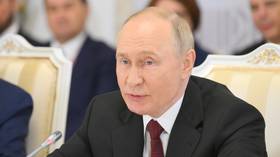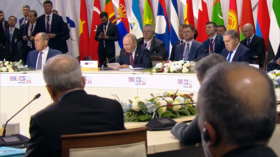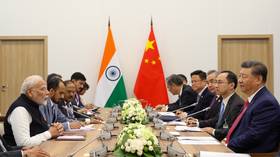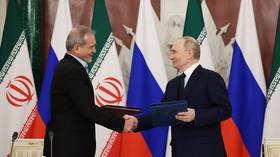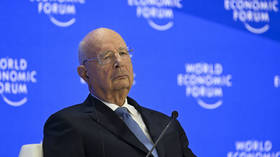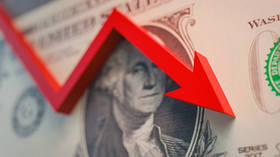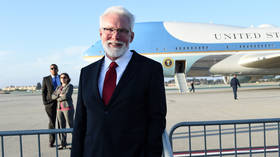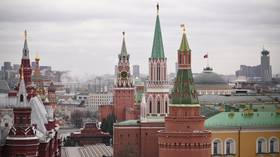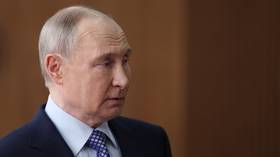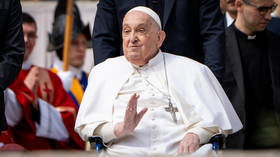Multipolar world order, leading role of emerging economies, and Western debt: Key takeaways from Putin’s BRICS address
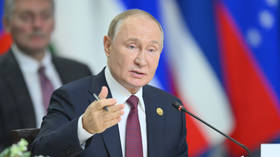
Russian President Vladimir Putin addressed a meeting of leaders at the BRICS Summit in Kazan on Wednesday. In his speech, he focused on the growing role and prospects of the economic group, and warned about the risks to the global economy from Western sanctions and protectionist policies.
Putin also announced Russia’s initiatives within the BRICS framework, including the formation of a grain exchange and a new investment platform.
Here are the key takeaways from the president’s address.
Multipolar world order being formed
World trade and the global economy as a whole are undergoing significant changes, the Russian president told the extended-format BRICS meeting. The center of business activity is gradually shifting towards developing markets, he added. “A multipolar model is being formed, which is launching a new wave of growth, primarily due to the countries of the Global South and East – and, naturally, the BRICS countries.”
Leading role of BRICS
The BRICS economies have been demonstrating “sufficient stability” due to responsible macroeconomic and fiscal government policies, the Russian leader said, noting accelerated growth rates are expected in the medium term. Putin cited preliminary estimates that average BRICS country economic growth in 2024-2025 will be 3.8%, compared to global figure of 3.2-3.3%.
The BRICS countries’ share of global GDP in terms of purchasing power parity (PPP) will amount to 36.7% by the end of 2024 and will continue to expand, Putin predicted. Meanwhile, the share of the Group of Seven (G7) leading Western economies is projected to account for slightly above 30%.
“The trend for the BRICS’ leading role in the global economy will only strengthen,” Putin said, citing population growth, capital accumulation, urbanization, and increased labor productivity, accompanied by technological innovations as key factors.
West’s unilateral sanctions and debt burden
The Russian president warned of a potential new global crisis, citing the growing debt burden in developed countries, unilateral sanctions, and protectionist policies as key threats. “These factors are fragmenting international trade and foreign investment, particularly in developing nations,” Putin said.
He also pointed to high commodity price volatility and rising inflation, which are eroding incomes and corporate profits in many countries. Putin’s remarks also highlighted concerns over escalating geopolitical tensions and their impact on global economic stability.
New BRICS investment platform as a powerful tool
The Russian leader said that to fully realize the potential of the BRICS countries’ growing economies, the member states should intensify cooperation in areas such as technology, education, resources, trade and logistics, finance, and insurance, as well as increasing the volume of capital investment many times over.
“In this regard, we propose creating a new BRICS investment platform, which would become a powerful tool for supporting our national economies and would also provide financial resources to the countries of the Global South and East,” Putin said.
BRICS-based grain exchange
The Russian leader proposed a common BRICS grain exchange to protect trade between members from excessive price volatility. BRICS countries are “among the world’s largest producers of grain, vegetables, and oilseeds,” he noted. Such a bourse could be expanded to trade in other major commodities such as oil, gas and precious metals, Putin said.
The initiative is aimed at protecting national markets from negative external interference, speculation and attempts to cause artificial shortages of food products, according to Putin.
AI alliance of BRICS
Putin also proposed a BRICS AI alliance to regulate the technology and prevent its illegal deployment. “In Russia, the business community has adopted a code of ethics in this area, which our BRICS partners and other countries could join,” Putin noted.
Other proposals
The president also spoke about increasing transport connectivity between BRICS countries, saying this could provide additional opportunities for growth and diversification of mutual trade.
“Such promising projects as the formation of a permanent BRICS logistics platform, preparation of a review of transport routes, opening of an electronic communications platform for transport, and establishment of a reinsurance pool are being discussed,” Putin said.
The issues related to the transition of the global economy to low-emission development models are very important, according to the Russian president. The BRICS contact group on climate and sustainable development is closely involved in this work and will continue to counteract attempts by some countries to use the climate agenda to eliminate competitors from the market, he said. “We consider the initiatives on the BRICS partnership on carbon markets and the climate research platform to be promising,” Putin concluded.
